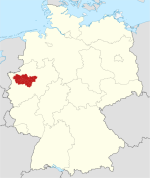History Learner
Well-known member
Historically, the French Emperor gave a somewhat-yes, but far too late and the unilateral conditions of his acceptance (Concerning the thrones of his family in Germany and Italy) resulted in the Coalition rejecting it and pressing home their advantage. This would result in Napoleon's overthrow in 1814, and the onset of the historical Concert of Vienna they shaped geopolitics in Europe for the next century. Given Napoleon did lean towards yes overall, what if he moved to accept the terms soon after their offer and did not engage in his delusions concerning his family retaining power outside of France itself?
For those that don't know, besides allowing Napoleon to keep his throne, the Proposals would have allowed France to retain its "Natural Frontiers":

The retention of Belgium and the Saarland will be a great boon for France once industrialization starts, as well as its influence over the Rhine River trade:

For those that don't know, besides allowing Napoleon to keep his throne, the Proposals would have allowed France to retain its "Natural Frontiers":
The retention of Belgium and the Saarland will be a great boon for France once industrialization starts, as well as its influence over the Rhine River trade:



